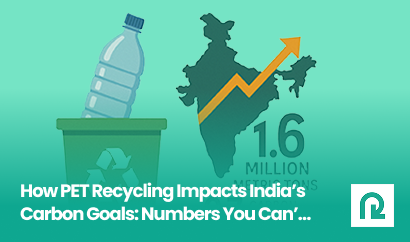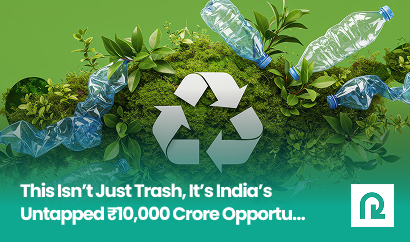Environmental
Every year, millions of PET (Polyethylene Terephthalate) bottles are produced and used worldwide, primarily for packaging beverages. While these bottles are highly convenient, they also pose a significant environmental challenge due to their widespread use and the waste they generate. However, with effective recycling processes, PET bott
Plastic Waste in India
A study by Marico Innovation foundation points out that India generated 3.4 million tonnes of plastic waste in 2019, but only 30% was recycled. It also notes that plastic consumption has risen at a CAGR of 9.7% to reach 20 million tonnes in 2019. This plastic, which pollutes land and water bodies, can be recycled to make a range of new products such as bulk packaging, toothbrushes, yoga mats, grocery bags, toys and gifts and many more. The guidelines by the Central Pollution Control Board (CPCB) mandate that all plastic waste must be segregated from non-recyclable ones and used for road-laying, manufacturing of waste-to-energy products or converted into refuse-derived fuels, with only a small proportion of non-recyclables disposed of in landfills. However, the on-ground implementation remains poor. For example, in 2019-20, only 60% of India’s waste was handled adhering to the CPCB guidelines.
Plastic Waste in India
A study by Marico Innovation foundation points out that India generated 3.4 million tonnes of plastic waste in 2019, but only 30% was recycled. It also notes that plastic consumption has risen at a CAGR of 9.7% to reach 20 million tonnes in 2019. This plastic, which pollutes land and water bodies, can be recycled to make a range of new products such as bulk packaging, toothbrushes, yoga mats, grocery bags, toys and gifts and many more. The guidelines by the Central Pollution Control Board (CPCB) mandate that all plastic waste must be segregated from non-recyclable ones and used for road-laying, manufacturing of waste-to-energy products or converted into refuse-derived fuels, with only a small proportion of non-recyclables disposed of in landfills. However, the on-ground implementation remains poor. For example, in 2019-20, only 60% of India’s waste was handled adhering to the CPCB guidelines.


